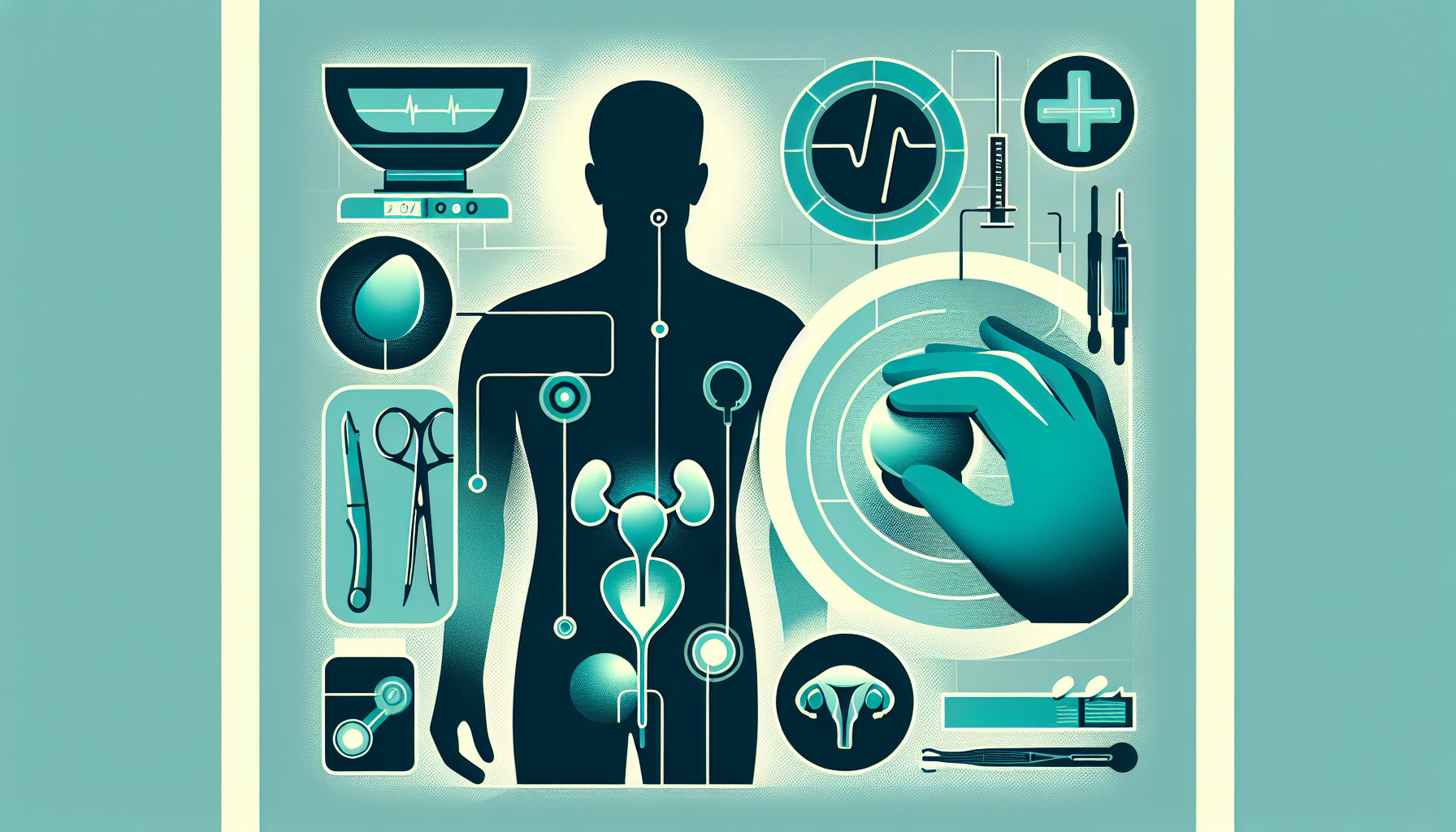Our Summary
This study examined the characteristics of prostate biopsies in patients treated with a drug called dutasteride, which is used to treat benign prostate hyperplasia (non-cancerous enlargement of the prostate). The researchers looked at the medical records of 677 patients who were suspected of having localized prostate cancer, including 96 who were treated with dutasteride, between 2014 and 2017.
They compared the characteristics of the patients in the dutasteride group with a control group, taking into account their age and levels of prostate-specific antigen (a substance produced by the prostate that can be indicative of prostate cancer). They found that the groups were well balanced.
The study found that there were fewer patients with prostate cancer in the dutasteride group. However, among those in the dutasteride group who did have prostate cancer, there were more cases of high-grade (more severe) cancers and more abnormal findings in MRI scans. Older age and abnormal MRI findings were significant predictors of high-grade cancer in the dutasteride group.
The researchers conclude that patients on dutasteride who are older and have abnormal MRI findings should have a prostate biopsy (a procedure to remove samples of prostate tissue to examine for cancer).
FAQs
- What was the main focus of this study on prostate biopsies?
- What were the significant predictors of high-grade cancer in the dutasteride group, according to the study?
- What is the recommendation for patients on dutasteride who are older and have abnormal MRI findings?
Doctor’s Tip
One helpful tip a doctor might tell a patient about prostate biopsy is to discuss any medications they are currently taking, including dutasteride, as it can affect the results of the biopsy. Patients on dutasteride should be aware that while it may reduce the overall risk of prostate cancer, it may also increase the likelihood of finding high-grade cancers if cancer is present. It is important for patients to have a thorough discussion with their doctor about the risks and benefits of prostate biopsy and to consider factors such as age and abnormal MRI findings when making decisions about further testing.
Suitable For
Overall, patients who are suspected of having localized prostate cancer, especially those who are older and have abnormal MRI findings, are typically recommended to undergo a prostate biopsy. Additionally, patients who have been treated with dutasteride for benign prostate hyperplasia may also be recommended for a biopsy if they have abnormal MRI findings or other risk factors for prostate cancer.
Timeline
Before the prostate biopsy:
- Patient may undergo a digital rectal exam to check for any abnormalities in the prostate.
- Blood tests may be done to check levels of prostate-specific antigen (PSA).
- If PSA levels are elevated or abnormal, the patient may undergo further tests such as a transrectal ultrasound or MRI to assess the prostate.
- If abnormalities are found, the patient may be recommended to undergo a prostate biopsy.
After the prostate biopsy:
- The patient may experience some discomfort or pain in the prostate area for a few days after the biopsy.
- A pathologist will examine the tissue samples taken during the biopsy to determine if there are any signs of prostate cancer.
- The patient will receive the biopsy results and discuss treatment options with their healthcare provider.
- If cancer is detected, the patient may undergo further tests and treatments such as radiation therapy or surgery.
What to Ask Your Doctor
Some questions a patient should ask their doctor about prostate biopsy include:
- Why do I need a prostate biopsy?
- What are the potential risks and complications of a prostate biopsy?
- How should I prepare for the procedure?
- What type of anesthesia will be used during the biopsy?
- How long will the biopsy take and what can I expect during the procedure?
- How soon will I receive the results of the biopsy?
- What will the biopsy results tell us about my condition?
- What are the potential treatment options based on the biopsy results?
- Are there any lifestyle changes or medications I should consider after the biopsy?
- Are there any alternative diagnostic tests or treatments that I should be aware of?
Reference
Authors: Obinata D, Nakahara K, Yoshizawa T, Mochida J, Yamaguchi K, Takahashi S. Journal: Medicine (Baltimore). 2022 Nov 4;101(44):e31658. doi: 10.1097/MD.0000000000031658. PMID: 36343082
